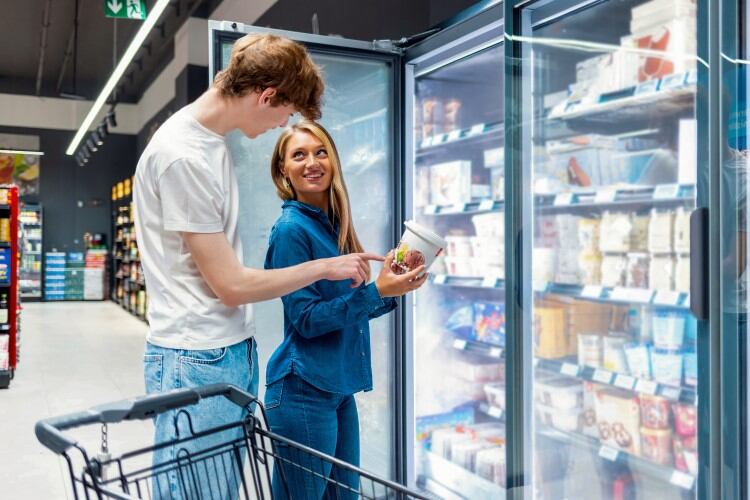The last mile is the shortest part of the supply line, representing the final destination that goods travel. In the case of ice cream, the last leg of the journey is from the retail freezer to the consumer. According to Unilever’s Climate Transition Action Plan, 10% of the firm’s greenhouse gas footprint comes from retail emissions, specifically ice cream freezers. For the company, the idea of storing ice cream at higher temperatures has been something of a game-changer.
Unilever carried out two pilots, one of which kicked off in Germany in 2022 and a second running in Indonesia in 2023, in a bid to ‘explore and understand’ in real-life conditions how ice cream held up at freezer temperatures of -12°C rather than the typical -18°C. “The first pilot in Germany has indicated an energy reduction of 24% per freezer cabinet,” a Unilever spokesperson told DairyReporter.
An energy reduction of almost a quarter from something as simple as turning up the freezer temperature six degrees is significant – it’s better for the environment and cheaper for the bottom line. But is it indeed that ‘simple’ to do?
According to Unilever, there are no hard and fast rules – it all comes down to how the ice cream performs when stored in warmer freezers, hence the need for trials. And while a few degrees may not look like a lot, in practice, subtle changes in storage conditions can bring about stability issues.
“If the ice cream products aren’t stable at -12°C after being tested in their current form, we look at reformulating them,” the Unilever spokesperson told us. “We do so by increasing firmness by rebalancing the ingredients in the ice cream so that the ice content increases, which is a key driver for firmness of an ice cream at the serving temperature.
“At the same time, we need to ensure that as we change the ingredient ratios, we retain the taste of the ice cream and that the flavour remains the same.
“We will also need to ensure that the ice cream melts in similar way – how quickly it melts, and how the ice cream coats the mouth.
“There are a range of tests that we do to ensure that we deliver the same great ice cream quality and eating experience.”
The 12 patents refer to a wide range of products from Unilever's portfolio, including coated ice creams, water ices, mini cups, and ice creams on a stick. All 12 applications have been published on November 9, 2023 and are accessible via the World Intellectual Property Organization website with the titles ‘frozen confection’. Readers who wish to take a closer look can do so via this link. To gain access to the patents, manufacturers need to reach out to Unilever to obtain a non-exclusive license.
‘Just the start’
Asked why the company has taken the step to share its secrets with the rest of the ice cream industry, Unilever’s spokesperson said the firm wanted to influence ‘a bigger shift’ across the sector. “Our ultimate goal is to see a bigger shift across our industry. We need to work together both with our peers, retailers and governments on this ambition,” they stated.
“This is why we are sharing the reformulation patents, to enable others with experience in ice cream formulation to adapt their own formulations to be resilient at warmer temperatures.
“Through collaboration, we believe we can reduce the ice cream cold chain’s impact on the environment, whilst continuing to deliver high quality products for our consumers. This is just the start of a long-term program.”

